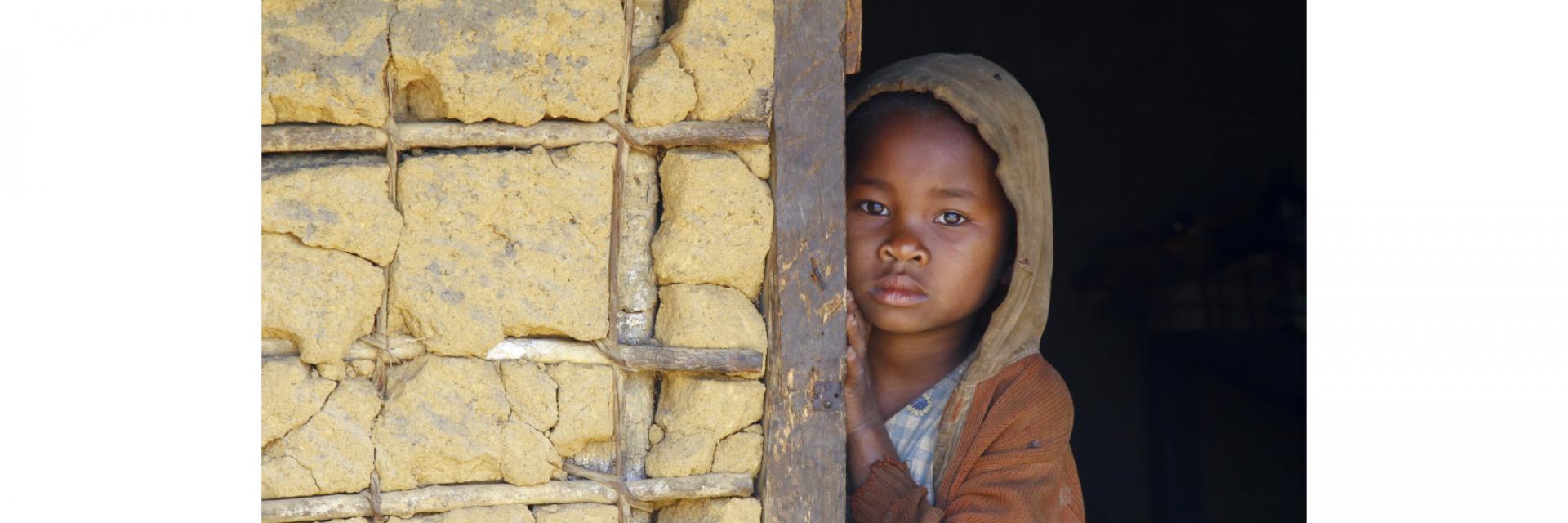Addis Ababa, 21 March 2023 (ECA) - While the world was still fighting the COVID-19 pandemic, the war in Ukraine broke out in early 2022. The impact of the two shocks has been exacerbated by the higher frequency and intensity of natural disasters.
The UN Economic Commission for Africa’s Deputy Executive Secretary and Chief Economist Hanan Morsy said that the three overlapping crises have pushed more Africans into extreme poverty and resulted in increased inequalities and vulnerabilities on the continent.
Morsy told the fifty-fifth session of the ECA Conference of African Ministers of Finance, Planning and Economic Development in Addis Ababa, that there were significant levels of poverty and inequality in Africa even before recent global crises but now poverty has worsened, and inequality has widened.
“Today, 546 million people are still living in poverty, which is an increase of 74 per cent since 1990”, stressed Morsy. “Global shocks have ripple effects on the poor in Africa through inflation, which, in 2022, stood at 12.3 per cent, which was much higher than the world average of 6.7 per cent”.
African countries with the highest levels of poverty
ECA estimates that households in Africa spend up to 40 per cent of their income on food, and the impact of global crises has hit the poorest households in Africa severely. A staggering 310 million Africans experienced some form of food insecurity and 6 million Africans faced extreme hunger in 2022.
According to recent research, the 10 African countries with the highest levels of poverty in Africa are Burundi, Somalia, Madagascar, South Sudan, the Central African Republic, Malawi, the Democratic Republic of the Congo, Guinea-Bissau, Mozambique and Zambia, in each of which between 60 per cent and 82 per cent of the population is poor
The burden of import dependency, Climate change and rising debt stress
The commissioner for Trade and Industry of the African Union Commission, Albert M. Muchanga told the conference of African Ministers of Finance, Planning and Economic Development that although Africa is the richest in the world in terms of natural endowments, we are the poorest.
African reliance on imports makes the continent vulnerable to commodity price shocks. In 2021, 39 African countries were net importers of food products. In addition, in 2021, Africa exported only $5.7 billion of refined petroleum products but imported over $44 billion of them.
“Coming out of the low levels of income and wealth is now being made more challenging by climate change as seen in the recent flooding in Madagascar Malawi and Mozambique” stressed Muchanga. “We must add to this, the looming debt crisis which could undermine all the growth achievements of the past 23 years”.
Experts and Ministers at the conference noted that African countries continue to face declining revenue, rising debt stress and increasingly constrained fiscal space.
In 2022, the government debt-to-GDP ratio in Africa was 64.5 per cent, which is significantly higher than the pre-pandemic figure for 2019 that was 57.1 per cent.
The two day-conference of African Ministers of Finance, Planning and Economic Development was convened under the theme: Fostering recovery and transformation in Africa to reduce inequalities and vulnerabilities.
Issued by:
Communications Section
Economic Commission for Africa
PO Box 3001
Addis Ababa
Ethiopia
Tel: +251 11 551 5826
E-mail: eca-info@un.org

